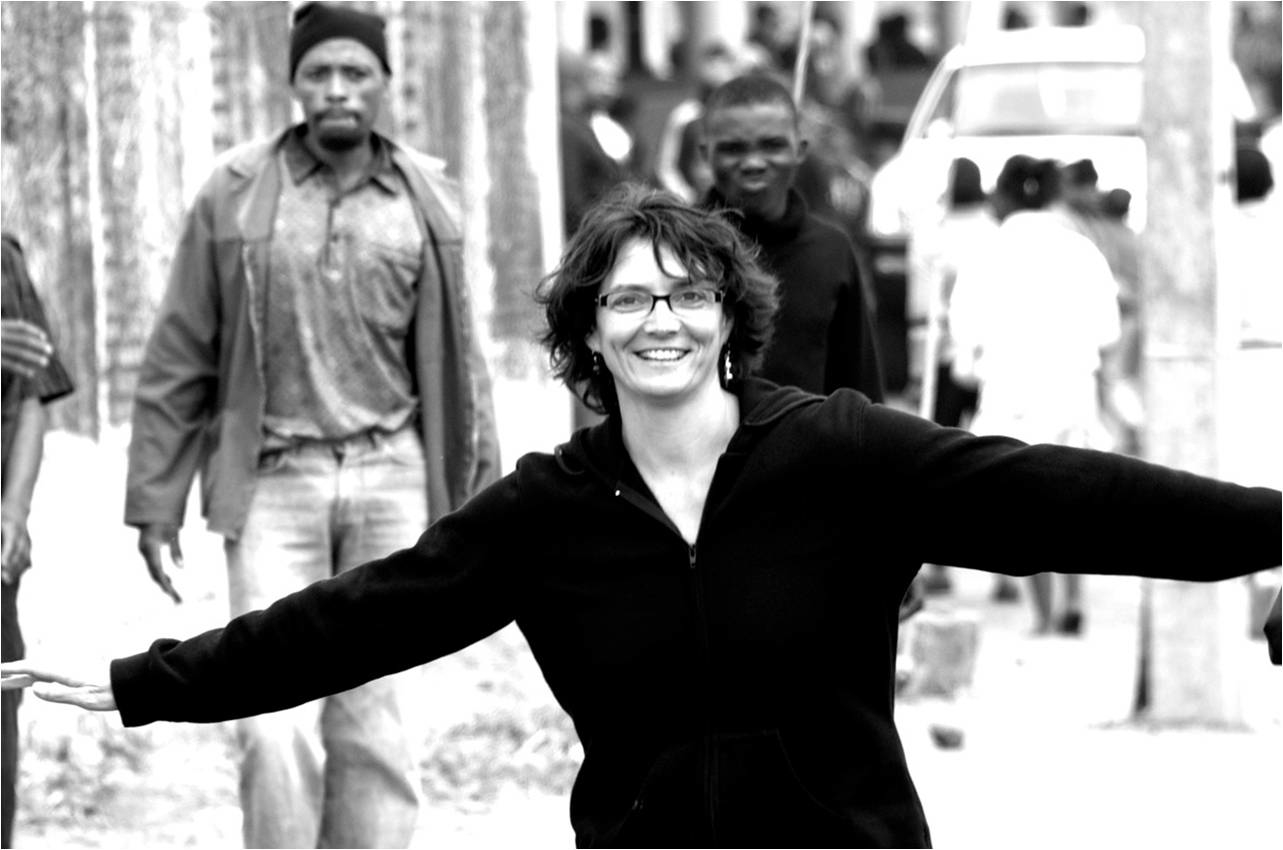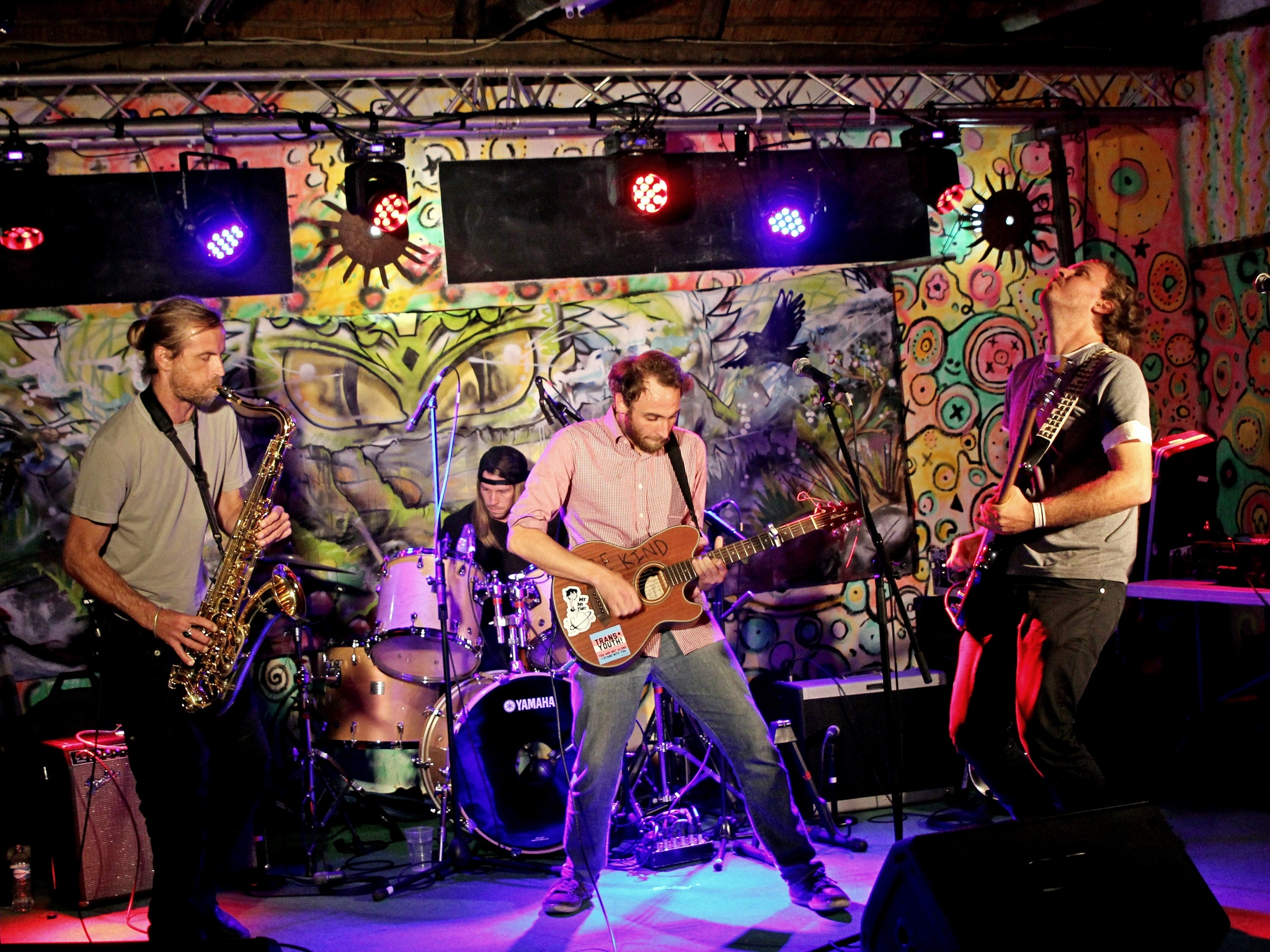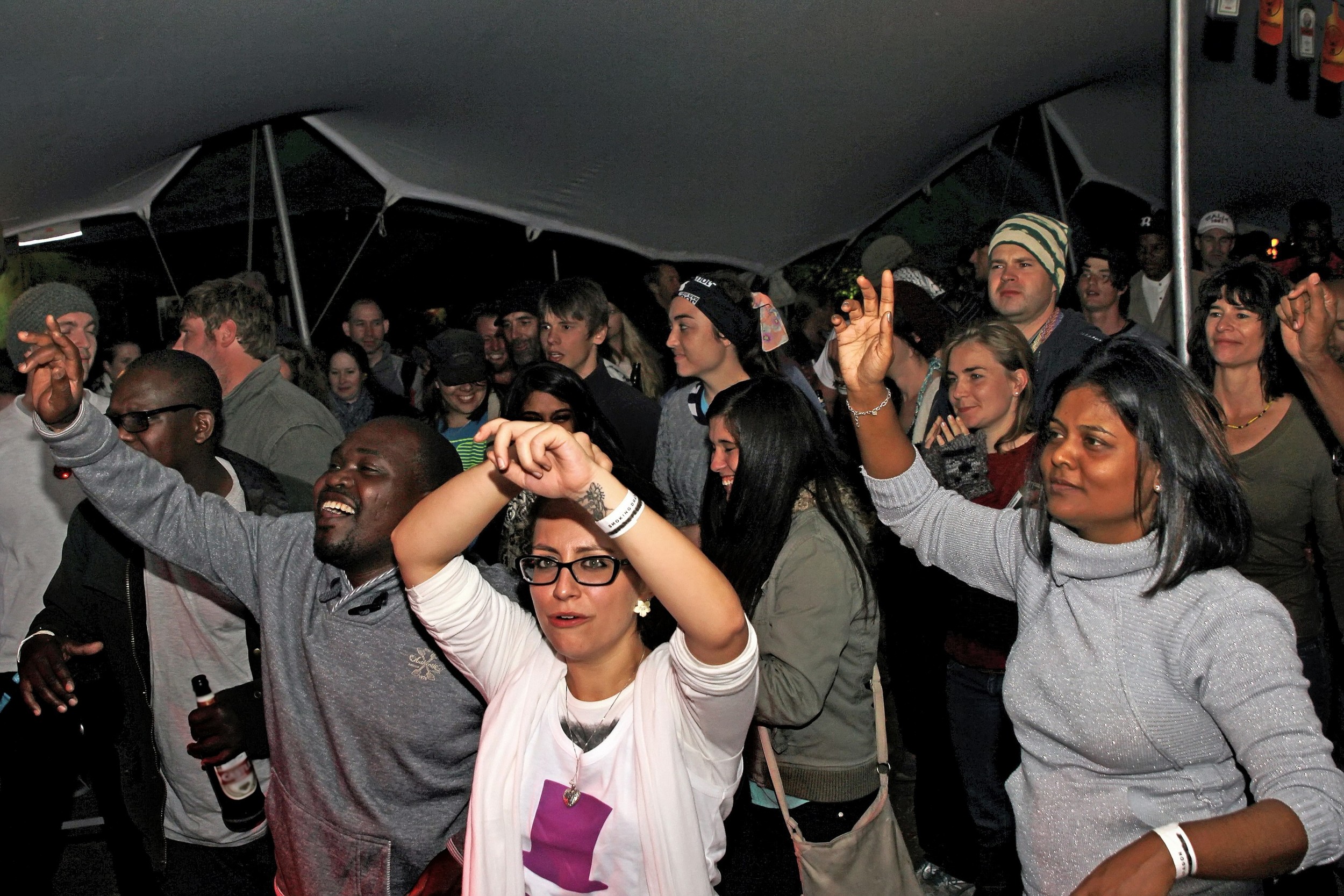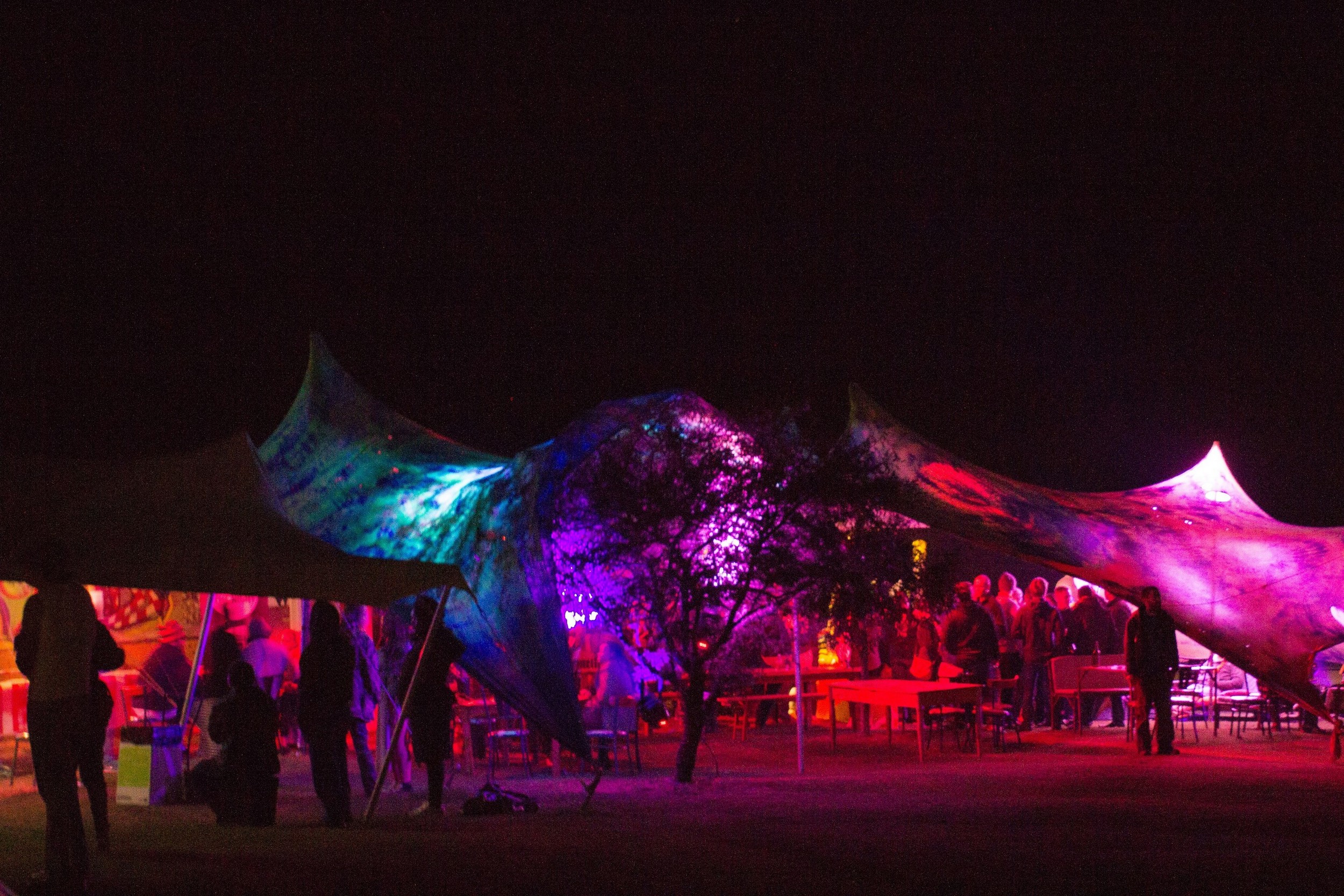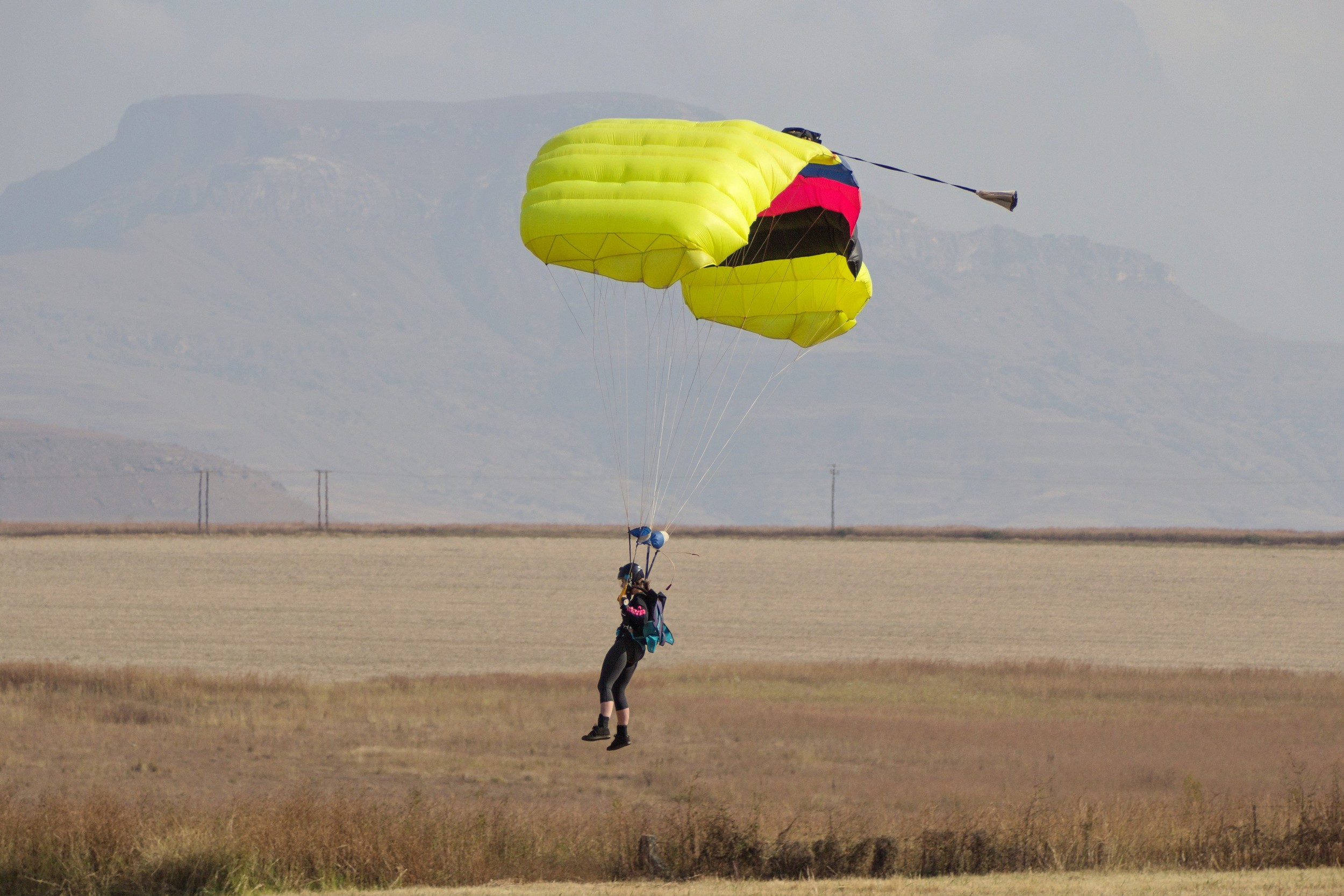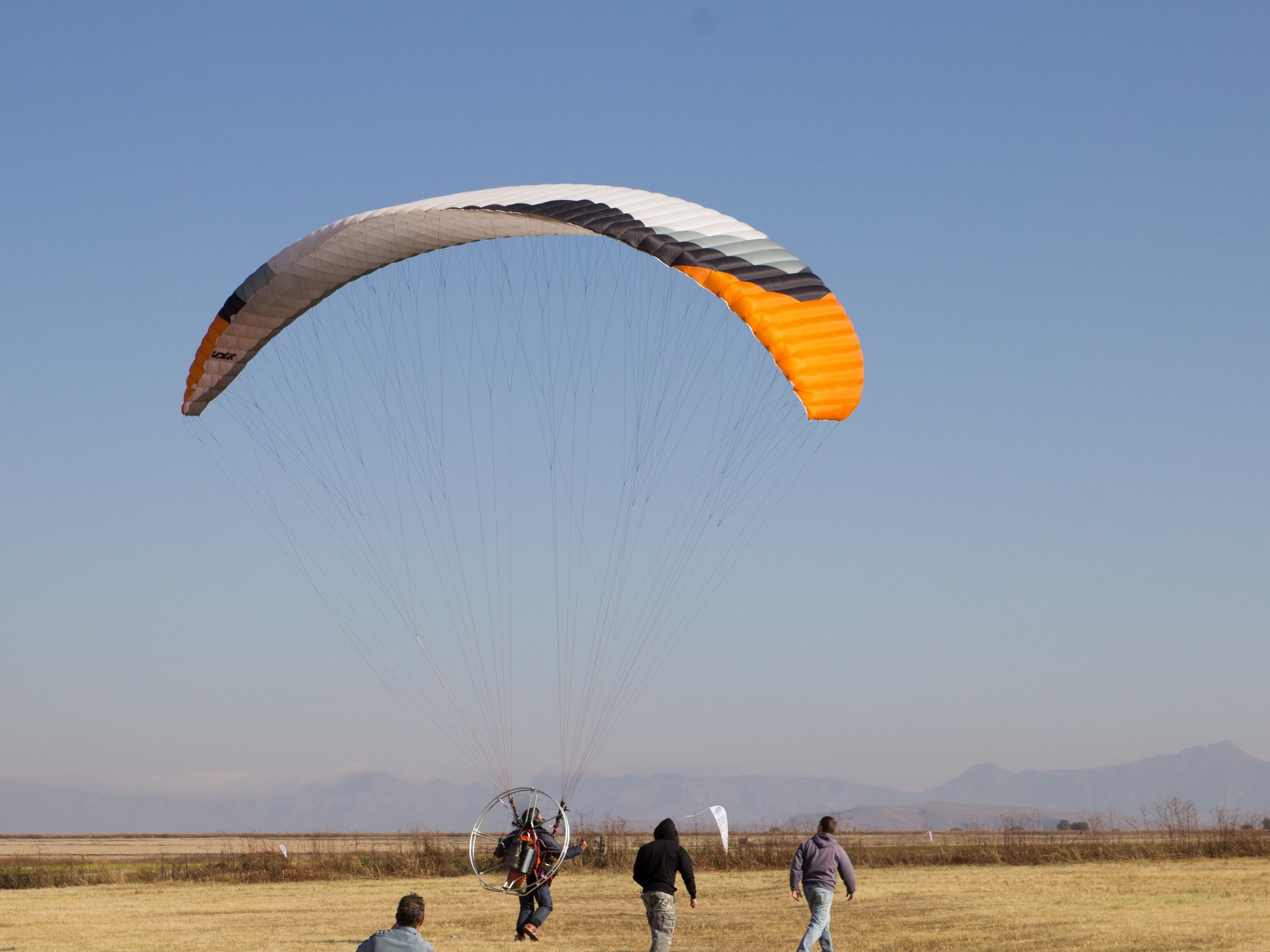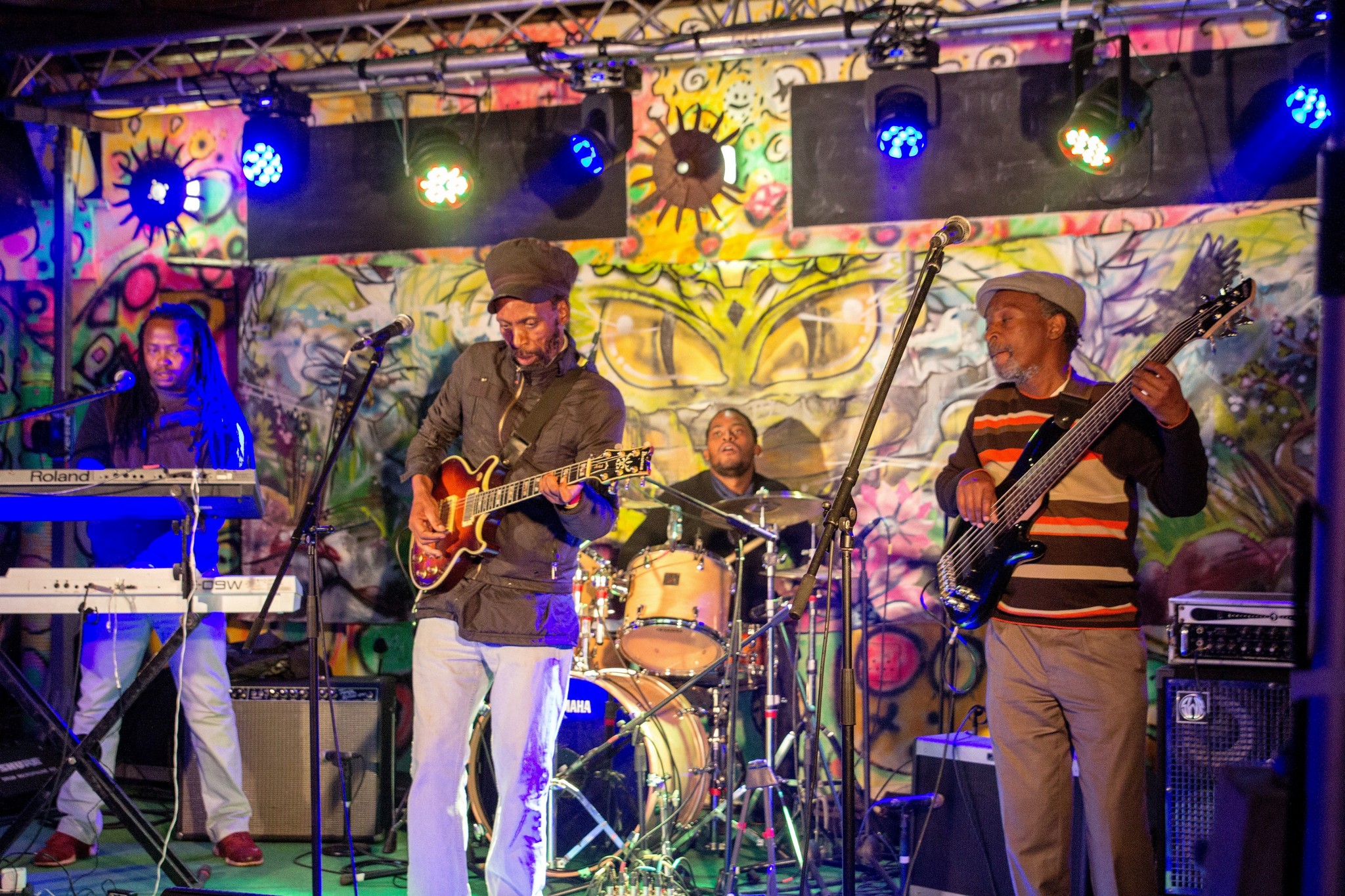35th DURBAN INTERNATIONAL FILM FESTIVAL 17-27 JULY 2013
2014 sees the Durban International Film Festival (DIFF) return for its 35th year to celebrate the wonder and diversity of global cinema. From 17 to 27 July, Durban will be lit by the glow of the silver screen, with over 250 screenings in 9 venues across the city. Alongside this smorgasbord of the best of contemporary cinema from around the planet, including 69 feature films, 60 documentaries, 57 short films and 19 surf films, the festival offers a comprehensive workshop and seminar programme that facilitates the sharing of knowledge and skills by film industry experts.
This year's diverse line-up of world-class cinema includes a key focus on 20 years of freedom and democracy in South Africa, as well as a snapshot of contemporary British film and various focus areas. DIFF 2014 includes a generous selection of feature films, cutting edge documentaries, eight packages of short films and a selection of thrilling surf films in the Wavescape Film Festival. This year also sees the return of Durban Wild Talk Africa, which includes a selection of the best environmentally themed films from around the world, as well as the second edition of ‘The Films That Made Me’, in which an acclaimed director introduces five films that have been important to their growth as a filmmaker .
New Festival Hub
While DIFF will return once more to light up screens in numerous venues across the city with a programme of fresh and exciting global cinema, the festival is delighted to announce that the festival hub, which houses both screenings and industry events, will now be located at the new, lavishly renovated Tsogo Sun Elangeni hotel on Durban beachfront’s Golden Mile.
South African Focus
The ever-expanding African film industry will once more be represented at DIFF 2014, although South African film retains its key focus, with 40 feature-length films and 38 short films – most of them receiving their world premieres on Durban screens, and collectively representing by far the largest number of South African films in DIFF’s history.
This year’s opening night film see the world premiere of Hard to Get, the electrifying feature debut from South African filmmaker Zee Ntuli, who has already received critical acclaim for his short films. The story of the mercurial relationship between a handsome young womaniser and a beautiful, reckless petty criminal, Hard to Get is fuelled by a bewitching visual poetry. Other high-profile South African films being showcased include the engaging thriller Cold Harbour, Between Friends, which recounts a reunion between old varsity friends, Hear Me Move, a locally flavoured dance movie, and Love the One you Love, which explores a constellation of relationships between young South Africans.
Then there’s the Tyler Perry-flavoured Two Choices, The Two of Us which tells of a relationship between two siblings, and Icehorse, a surreal mystery drama set in the Netherlands from South African director Elan Gamaker. Young Ones is a dystopian down-beat sci-fi flick directed by Jake Paltrow, produced by Spier Films and shot in South Africa, while the French/South African co-production Zulu explores the unhealed wounds of the new South Africa. Finally, DIFF is very proud to present the 1978 film Joe Bullet, the first work to benefit from the Gravel Road legacy project, which aims to restore films lost in the dusty archives of apartheid.
African Focus
The rich programme of films from elsewhere on the continent includes a number of artistically and politically brave directorial voices that are unafraid to experiment with form or content. The bewitching and high experimental Bloody Beans recounts the Algerian revolution using a band of young children as its medium of expression, while the utterly charming and super-low-budget Beti and Amare is an Ethiopian vampire film with a difference.
DIFF 2014 also acknowledges the political reality of contemporary Africa with films such as Timbuktu from Malian master Abderrahmane Sissako, which recounts Timbuktu’s brief occupation by militant Islamic rebels. The mockumentary hybrid They Are the Dogs is set in Morocco in the aftermath of the Arab Spring, while the engagingly authentic semi-autographical film Die Welt is set in Tunisia shortly after the recent Jasmine Revolution. Imbabazi: The Pardon explores the possibilities of reconciliation in the wake of the Rwandan genocide, and Difret examines the potentially destructive role of patriarchal traditions in contemporary Ethiopia.
Set in Tanzania, the disturbing but visually powerful White Shadow tells the story of a young albino boy named Alias who is targeted for body parts by muti traders. Veve, the latest film from the producers of the award-winning crime drama Nairobi Half Life, documents the double-crossing lives of those trading in khat or ‘veve’, a mildly narcotic local crop. From Moroccan director Abdellah Taia comes Salvation Army, which tells of a young Arab man grappling with notions of family and sexuality. Then there is the highly anticipated film adaptation of Chimamanda Ngozi Adichie’s Half of a Yellow Sun, set against the difficulties of post-independence Nigeria.
Coz Ov Moni II: FOKN Revenge, billed as ‘the world’s second first pidgin musical’ is a Ghanaian hop-hop opera from rap duo the FOKN Bois, while B for Boy tells the story of how a Nigerian woman’s life is corrupted by the forces of patriarchy and tradition.
SPECIAL FOCUS: 20 Years of Freedom and Democracy
2014 is the 20th anniversary of the advent of a free and non-racial democracy in South Africa. This year’s programme includes a generous spread of documentaries, both from home and abroad, which celebrates, explores and interrogates the progress that South Africa has made as a country over the last two decades. The 20 Years of Freedom and Democracy programme features an expanded South African documentary programme in response to the large number of high quality doccies currently being produced in the country.
The result is a rich and diverse slate of films, including Khalo Matabane’s Nelson Mandela: The Myth and Me and Miners Shot Down, Rehad Desai’s devastating account of Marikana. They are joined by many other films that chronicle lesser known but no less significant stories behind the end of apartheid and the rebirth of South Africa into a new country.
The full selection of the 20 Years of Freedom and Democracy programme are 1994 The Bloody Miracle, Concerning Violence, Fatherland, Freedom Mixtape (1994-2014), Future Sounds Of Mzansi, Gangster Backstage, I,Afrikaner, Letters To Zohra, Miners Shot Down, My Hood, Nelson Mandela: The Myth & Me, One Humanity , The Other Man, Plot For Peace, Rainbow Makers: Tribute To The Frontline States, Shield And Spear, A Snake Gives Birth To A Snake, Soft Vengeance: Albie Sachs And The New South Africa and Word Down The Line.
UK Focus
This year’s UK focus is part a UK-South African cultural season taking place over the next two years. In recognition of this season, DIFF presents a diverse snapshot of contemporary British cinema – including the strangely compelling Lilting which tells the story of the triangular relationship between two gay men and one of their mothers, ’71 which is set in Belfast at the beginning of The Troubles and the highly endearing Frank, which chronicles the misadventures of a band of outsider musicians.
How I Live Now is a post-apocalyptic tale set in rural England in the wake of a nuclear bomb. The Selfish Giant is a Dickensian tale of two working class boys who live on the knife’s edge of poverty and adolescence. Gone Too Far offers a nuanced look at race in contemporary Britain, while Only Lovers Left Alive is the UK-produced downbeat vampire masterpiece from Jim Jarmusch.
British Documentaries include InRealLife, which explores our relationship with the internet and social networking technology, the real-life heist drama Smash and Grab: The Story of the Pink Panthers, 20 000 Days On Earth, which documents a fictitious day in the life of much-loved musician Nick Cave, Coach Zoran And His African Tigers which tells of the birth of the South Sudan national soccer team, and the UK/SA coproduction One Humanity, which documents the global anti-apartheid movement from the perspective of the two tribute concerts to Nelson Mandela that took place in London in 1988 and 1990.
In addition to this focus area in DIFF’s programing, the DIFF UK Focus also includes free public screenings of British films, preceded by a programme of short films from South African filmmakers, courtesy of the South African National Film and Video Foundation (NFVF). These screenings will take place on Friday 18 July, Saturday 19 July, Friday 25 July and Saturday 26 July.
The UK Focus is supported by the British Council, while the beach screenings form part of the British Council’s Connect ZA programme in partnership with the NFVF.
.
World Cinema
Beyond its strong focus on Africa and South Africa, DIFF is a festival of world cinema and, as is the case every year, this year’s edition is filled with a richly diverse selection of films from around the world. From Sweden comes The 100-Year-Old Man Who Climbed Out Of The Window And Disappeared based on the popular novel by Jonas Jonasson. Amazonia (France/Brazil) follows the epiphanic journey of Sai, a tame capuchin monkey unaware of the wider natural world until the plane on which he is being transported crashes in the Amazon basin. An Episode In The Life Of An Iron Picker (Bosnia and Herzegovina/France/Slovenia) follows a Roma couple as they eke out a tenuous existence, and Arwad (Canada) tells the story of Ali, who, after the death of his mother, escapes to the island of Arwad, off the coast of Syria.
Then there is the Chinese noir film Black Coal, Thin Ice which follows a dissolute former detective who falls under the spell of a widow with a dark secret. Concrete Clouds (Thailand, Hong Kong SAR China) is a complex story about identity and belonging set against the 1997 Asian economic crisis. The Congress (Israel/ Germany/Poland/ Luxembourg/France/Belgium) is the latest left-field masterpiece from Israeli animator Ari Folman (Waltz with Bashir), while The Lunchbox (France/Germany/India) is a luminous tale of an isolated housewife who attempts to reignite her relationship with her husband through her delectably prepared meals. In Mary Is Happy, Mary Is Happy from Thailand, cinema meets social media in an innovative film that is constructed around 410 consecutive Twitter updates. The Austrian film My Blind Heart follows a young man suffering from a rare genetic disorder as he lives a marginal life in the city of Vienna, and Nuoc 2030 from Vietnam is set in a near-futuristic landscape flooded as a result of global warming.
Nymphomaniac (Denmark/Germany/France/Belgium/Sweden), from controversial filmmaker Lars von Trier, is an ambitiously explicit sexual epic while Omar (Palestinian Territories) is a tense political thriller set in the West Bank. Papilio Buddha (India/United States) tells of the university-educated son of a Dalit activist who is politically apathetic until he receives bad treatment at the hands of the state. The Rocket (Australia/Laos/Thailand) is set in the lush mountain countryside of Laos and chronicles the attempts of a young outsider to overcome his fate. The Rover (Australia/United States) is the latest film from Australian filmmaker David Michôd, director of the 2010 DIFF hit Animal Kingdom, while the American film Wish I Was Here is a sequel of sorts to Zach Braff’s 2004 hit debut Garden State.
Gender and Sexuality
As is usually the case, this edition of DIFF has a strong selection of films exploring sexuality and gender issues. 52 Tuesdays chronicles the female-to-male gender transition of a woman from the perspective of her daughter, who visits her mother once a week during the year-long process. The frank yet mercurial Love is Strange tells of two gay New Yorkers who decide to get married after 40 years of living together, and suddenly find themselves separated from each other. The Indian film Qissa blurs the boundaries of gender and genre in its story of girl who is brought up as a boy, while Something Must Break introduces us to the apparently straight Andreas, who finds himself drawn to Sebastian, who is wrestling with the emerging strength of Ellie, the women he feels he must become.
Peaches Does Herself is an instant concert film classic and also a neo-queer, post-punk camp extravaganza, with the Canadian electroclash artist directing herself. Eastern Boys follows the shifting relationship between the between a mild-mannered, middle-aged Parisian named Daniel and Marek, a young Eastern European boy who he picks up in a train station. Finally, Salvation Army is an unflinching, poetic study of a young Arab man grappling with notions of family and sexuality. Rendered in filmmaking styles as diverse as the sexuality they document, this is a fascinating selection of films about the edges of sexuality.
Documentaries
This year’s selection of documentaries is the largest yet in DIFF’s 35 year history. As well as the rich selection of doccies presented in the 20 Years of Freedom special focus area, there are a number of other local offerings included in the Wild Talk stream. Then there is a stellar selection of documentaries from around the world, collectively presenting a global snapshot of life on earth. We Come as Friends explores the human cost of neo-colonialism in newly independent South Sudan, A World Not Ours provides a deeply compassionate but acerbic glimpse into life in a Palestinian refugee camp in Lebanon, and Cairo Drive looks at life in contemporary Cairo from the perspective of its anarchic traffic system.
These Birds Walk tells the heart-breaking and cinematically astounding story of a Pakistani orphanage and ambulance service, while The Kill Team is a dark catalogue of illicit killings of civilians by American soldiers in Afghanistan. The King and the People documents the repressive rule of Swaziland’s King Mswati III, Africa’s last remaining absolute monarch, and Life Itself chronicles the life of Roger Ebert, the much loved film critic who died last year. Finally, Prophecy. Pasolini's Africa and How Strange to be Named Federico present two very different tributes to two of the greatest names in Italian cinema.
The Encounters-DIFF Connection
This year DIFF presents several films in association with Encounters Film Festival. These films include Annalet Steenkamp’s I, Afrikaner, Rehad Desai’s Miners Shot Down, Jolynn Minnaar’s Unearthed, Marion Edmund’s The Vula Connection and Abby Ginzberg’ Soft Vengeance: Albie Sachs and the New South Africa.
Wavescape Film Festival
For the ninth year, DIFF partners with Wavescape to bring you a feast of surfing cinema, including 8 features and 11 shorts. Inspired by such films as Rattle and Hum and Endless Summer, Fading West follows Grammy-winning alternative-rock band Switchfoot as they hunt for surf around the globe. In Land of Patagones two brothers trek to the guano-infested solitude of Patagonia, the far southern home of toothfish and uncharted surf. In Out in the Line Up two gay surfers unite to uncover the taboo of homosexuality in surfing, while Stephanie in the Water tells the story of Stephanie Gilmore who won her first world surfing championship event at the age of 17 on a day off from high school.
Other Wavescape films include Tidelines, in which a South African crew circumnavigates the world to find waves but also to document how badly plastic debris has impacted our oceans, while McConkey is a tribute to Shane McConkey, the extreme skier.
Wavescape opens with a free outdoor screening at the Bay of Plenty Lawns on Sunday 20 July, before locating at Ster-Kinekor Musgrave Monday 21 July to Friday 25 July.
The Films That Made Me
This year, for the second time, DIFF presents a repertory section in which film lovers and filmmakers have the opportunity to access a slice of film history. In ‘The Films That Made Me’ section, acclaimed South African director Khalo Matabane presents five films that have been influential in his growth as a filmmaker. The five films that Matabane will present are Krzysztof Kie?lowski’s A Short Film About Killing (1988), Denys Arcand’s The Decline Of The American Empire (1986), Martin Scorsese’s Raging Bull (1980), Alfred Hitchcock‘s Rear Window (1954) and Spike Lee’s Do The Right Thing (1989). After each screening, Matabane will lead a discussion regarding the importance of the film. These screenings will be part of the Talents Durban programme but will also be open to the public
Talents Durban
The 7th Talents Durban (formerly Talent Campus Durban) will bring together the creativity of 40 selected filmmakers from 10 different countries in Africa, chosen from over 150 submissions, who will take part in a series of masterclasses, workshops and industry networking opportunities during the festival. Supported by the German Embassy, the KwaZulu-Natal Film Commission, the Goethe-Institut and the Gauteng Film Commission, Talents Durban is presented in co-operation with Berlinale Talents. Talents Durban is a platform for filmmakers to enhance their skills, develop collaborations and interface with the dynamic film industry in Africa and beyond.
Durban FilmMart
Now in its 5th year, the Durban FilmMart, a partnership project with the Durban Film Office and the Durban International Film Festival, and supported by the City of Durban, is a film finance and co-production market presented in three strands – Finance Forum, Master Classes and the Africa in Focus seminars. 20 selected African projects (including 10 fiction features and 10 documentaries) will have an opportunity to hold one-on-one meetings with potential financiers, co-producers, and distributors in the Finance Forum. All projects will also have an opportunity to pitch their projects to a panel of international commissioning editors and financiers in the African Pitch, a structured pitching forum of the market. The DFM master class and networking programme is open to registered delegates only. See www.durbanfilmmart.com for further details.
Wild Talk
For the second year running, DIFF is host to the Durban Wild Talk Africa showcase of local and international environmentally and wildlife-focused films. The Durban Wild Talk Africa Film Festival and Conference, now in its 9th year, brings a world-class television market and natural history conference to South Africa every two years. After the success of last year’s conference at DIFF, Durban Wild Talk Africa will again present a programme of nature films. The full Wild Talk conference will be back in Durban next year.
This year, the Wild Talk strand offers entertaining and enlightening viewing for nature enthusiasts, animal-lovers, adrenalin junkies and environmentalists alike. Some not-to-be-missed films include Unearthed, a shocking insight into the world of hydraulic fracking and the dark underbelly of America’s gas industry, Black Mamba: Kiss of Death, in which we witness an hour in the life of the most feared snake in Africa, and Birdman Chronicles, which launches head-first into the adrenaline-charged world of wing-suit flying. DamNation explores the changing attitudes towards dams and the devastating effect of these man-made structures while Expedition to the End of the World is an account of a visit by a group of artists and scientists to the rapidly melting massifs of North-East Greenland.
Other Wild Talk films include the award-winning Iranian astronaut-inspired Sepideh, The Ghosts in our Machines, Liz Marshall’s photographic exploration into the commodification of animals, an artistic voyage into water with Watermark, and the world premiere of Lady Baboon, which chronicles the life of the woman who single-handedly started the controversial baboon conservation movement in South Africa.
Architecture Film
The week after DIFF ends, Durban will be hosting the World Congress of Architects at UIA2014. In acknowledgement of this fact, the festival presents a small stream of films which explore various aspects of architecture. Cathedrals of Culture begins with the question "If buildings could talk, what would they say about us?", and offers six startling responses from six filmmakers from around the world. Great Expectations presents the grand architectural visions of our time, from the functionalist cities of Le Corbusier to the light-weight structures of Buckminster Fuller to Paolo Soleri's crystalline villages in the desert. The Human Scale documents how modern cities tend to leave us each alone in an almost infinitely large crowd and suggests that we can build cities in ways that takes human needs for inclusion and intimacy into account. Lastly, Microtopia investigates various ways in which architects, artists and ordinary problem-solvers are pushing the limits to find answers to the dream of portable, flexible and sustainable housing.
The architecture stream of programming is presented in partnership with the Architect Africa Film Festival and UIA2014.
Ticketing
DIFF 2014’s principal screening venues are Suncoast Cinecentre, Ster Kinekor Musgrave, Cinema Nouveau – Gateway, Elizabeth Sneddon Theatre, Ekhaya Multi-Arts Centre in KwaMashu, and the Tsogo Sun Elangeni Hotel. Other venues include the Bay of Plenty Lawns, the KZNSA Gallery and the Luthuli Museum on the North Coast, which will have a special programme of screenings.
Tickets should be acquired through the respective venues and prices range from R25 to R40 (R50 for 3D screenings), except at Luthuli Museum, Ekhaya, Elangeni Hotel and Bay of Plenty lawns, which are free of charge. The Short Film programme at the KZNSA Gallery costs R25.
Programme booklets with the full screening schedule and synopses of all the films are available free at cinemas, and other public information outlets. Full festival details can also be found on www.durbanfilmfest.co.za or by calling 031 260 2506 or 031 260 1816.
The 35th Durban International Film Festival is organised by the Centre for Creative Arts at the University of KwaZulu-Natal (a special project of the Deputy Vice Chancellor of the College of Humanities, Cheryl Potgieter) with support from the National Film and Video Foundation, KwaZulu-Natal Department of Economic Development & Tourism, KwaZulu-Natal Film Commission, City of Durban, German Embassy, Goethe Institut, Industrial Development Corporation, KwaZulu-Natal Department of Arts and Culture and range of other valued partners.
Ends
MEDIA QUERIES:
Sharlene Versfeld / Sipho Ngwenya
Versfeld and Associates
Tel: +27 (0) 31 811 5628
Cell: +27 (0) 83 326 3235
Fax: +27 (0) 86 682 7334
Email: sharlene@versfeld.co.za / info@versfeld.co.za
FESTIVAL ENQUIRIES:
Phone: +27 (0) 31 260 2506/1816
Fax: +27 (0) 31 260 3074
Email: diff@ukzn.ac.za
Website: www.durbanfilmfest.co.za. Twitter @DIFFest
